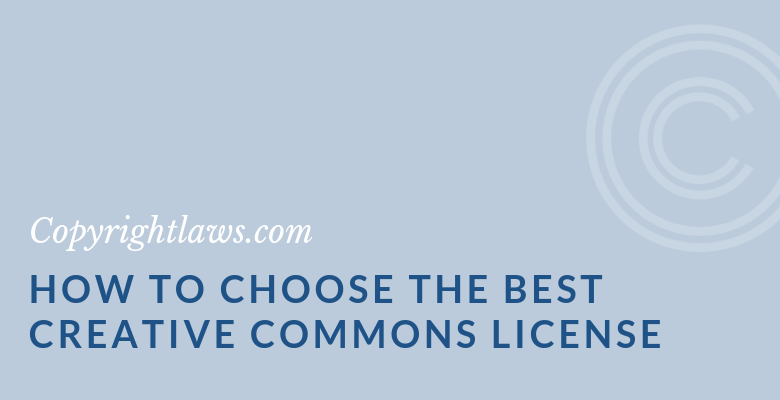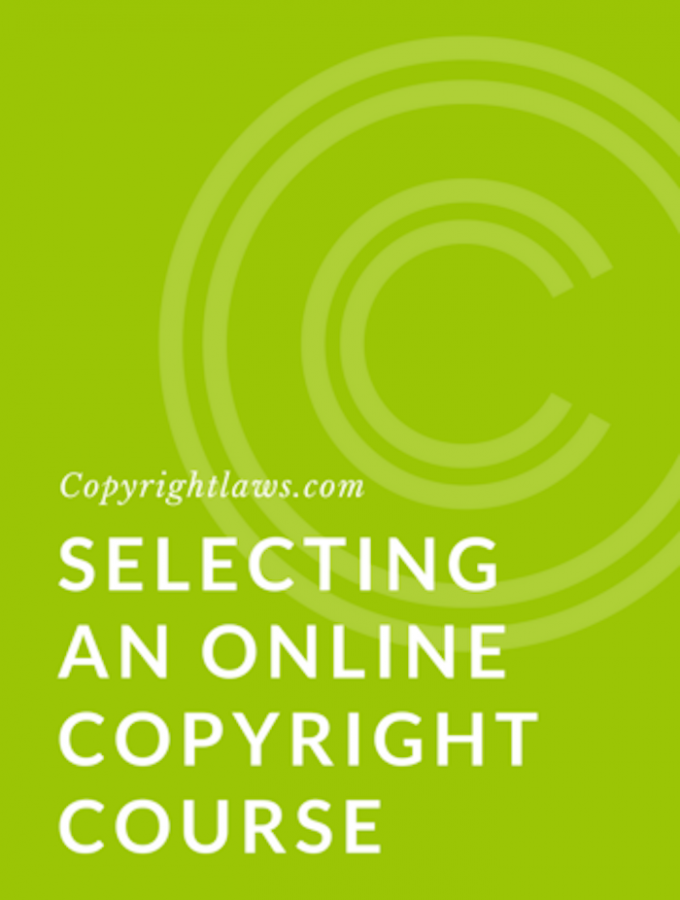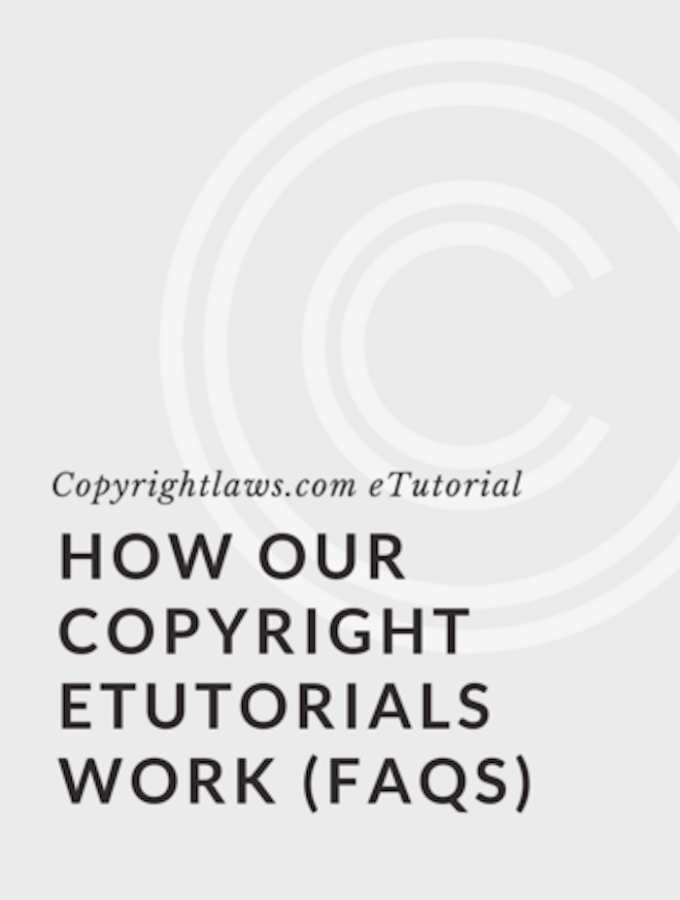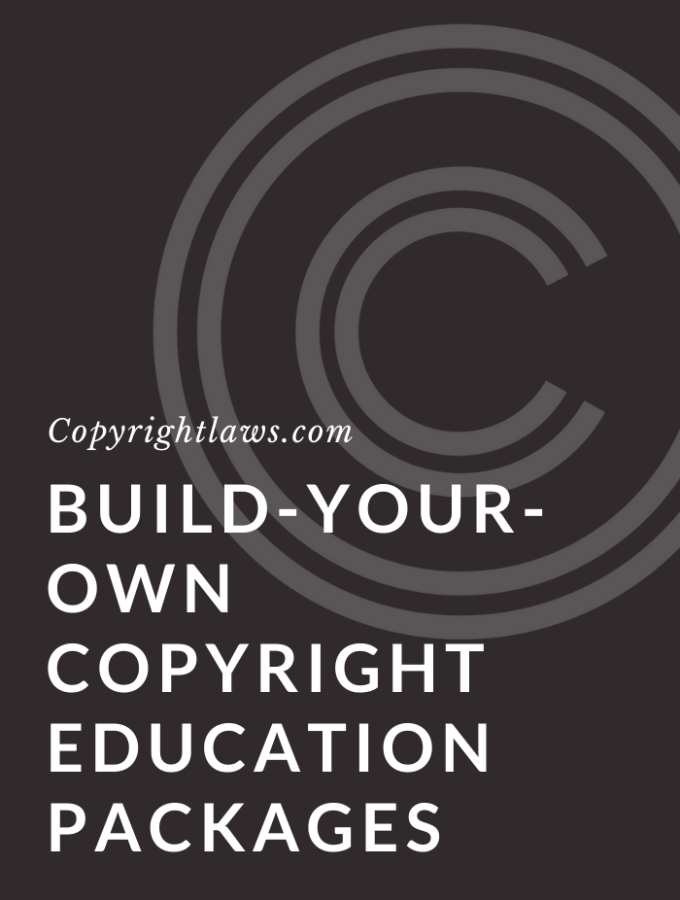
Whether you’re sharing a new article or photograph on your personal blog or on your library or organization’s website, you may want to enable others to easily and legally use your copyright-protected work. Creative Commons (CC) licenses may be the solution you’re looking for. Here's how to choose the best CC license for your work.
Scroll to the end of this article to download our
Creative Commons License Primer.
Below we discuss:
- Is a Creative Commons License the Best Choice for You?
- Are You Eligible to Use a CC License?
- How Do Copyright and Creative Commons Licenses Work Together?
- Misconceptions About CC Licenses
- How to Choose the Best Creative Commons License
Is a Creative Commons License the Best Choice for You?
If you’ve posted an article on your website, and you want others to be able to easily use it without emailing you for each permission, then a CC license may be a great tool for you.
If you’ve written a book, however, you’ll likely want a screenwriter or film producer to obtain your permission (i.e., option your book) before adapting it into a screenplay or film. In that situation, a CC license isn’t the best choice for providing permission to use your work.
For each work you create and plan to share online, you need to make the decision as to whether you want it covered by a CC license. In other words, all your works won’t be automatically covered by the same license. Rather, it’s an individual choice for each image, article, video or other copyright-protected work you create.
Creative Commons licenses have numerous advantages for content owners.
- By using a CC license, you’re making it easy for others to use your work without any administration on your side. In other words, you don’t have to provide permission for each use.
- For uses for which you want more control, you can select a narrower CC license. You make this decision for each work; it’s not universal for all of your creations.
- A CC license isn’t exclusive. You can still license the same content to others, even for payment and commercial purposes.
Whenever you use a CC license, however, you’re choosing a perpetual and non-revocable license that lasts for the duration of copyright. So, licensees may use the CC-licensed work for the duration of copyright protection. If you so choose, you can stop distribution of your CC-licensed works and no longer make them available. However, those who’ve had access can continue to use them under the terms of the CC license during their copyright protection duration.
Are You Eligible to Use a CC License?
You must meet three criteria to be eligible to use a CC license:
- Copyright must exist in the work being licensed. (See below for more information on copyright and CC licenses.)
- You must be the copyright owner of the work to place a CC license on it. For example, if you created the work as part of your employment, you may not be the copyright owner. If you’ve assigned the copyright to someone else, then you're no longer its copyright owner.
- If you're in an exclusive or even non-exclusive licensing arrangement, including as a member of a copyright collective, you may be restricted from using CC licenses. Check your licensing arrangement to see if it contains any restrictions about CC licenses.
Do you need to register a work with the U.S. Copyright Office prior to using a CC License? No, you don’t. However, if you live in the U.S. and would enforce your rights if necessary under the U.S. Copyright Act, then you do need to register for that purpose. You can register at any time prior to commencing a lawsuit, but registering within three months of publishing or distributing a work makes it easier to sue an alleged infringer and recover money from them.
How Do Copyright and Creative Commons Licenses Work Together?
Simply put, CC licenses are a way to easily share online copyright-protected works. If a work isn’t protected by copyright, then it doesn’t need a CC license.
CC licenses are available for any online works that are protected by copyright, including:
- E-books
- Articles
- Graphs, tables and charts
- Images, illustrations and photographs
- Videos
A CC license ...
- Provides copyright owners with an easy and uniform way to provide universal permission to their online works without having to administer those permissions.
- Clearly states what others can do with those copyright-protected works, such as republish, adapt, share, et cetera.
- May allow creators and copyright owners to share their works or a version of them before they monetize them or a related work.
- Allows copyright owners to diversify their business model. For example, a copyright owner may share an e-book under a broad CC license, but then charge for an online course on the same topic as the e-book.
If a work isn't eligible for copyright protection or its copyright has expired and the work is in the public domain, then a CC license isn’t necessary. Anyone may use, publish and adapt that work without permission.
Copyright Principles
Copyright law varies from country to country. So, check your country’s Copyright Act to see which works are protected, what rights you have as a copyright owner and the duration of your copyright protection. Here are some general copyright principles:
- Copyright protection is automatic upon the creation of a work once it's in some fixed form such as saved on your computer or a USB drive.
- The author is generally the first owner of the work (unless it was created in the course of employment).
- Copyright lasts for 50 to 70 years after an author’s death. After it expires, the work is said to be in the public domain. The duration of copyright in the both Canada and the U.S. is life-plus-seventy.
- A copyright owner’s sole and exclusive rights include the right to publish, adapt, translate, perform in public, and transmit over the internet. The copyright owner may license or transfer these rights to others in whole or in part.
- In addition to the above economic rights, an author has moral rights. Moral rights protect the author’s paternity (e.g., right to have their name on their work) and integrity (protection again modifications to a work that harm the author's honor or reputation).
Misconceptions about CC Licenses
There are many misconceptions about CC licenses. For example, some people think they confer copyright ownership. Others believe that a CC license grants them permission to use a work in whatever way they wish.
CC licenses are just that: licenses. A license is permission to use a copyright-protected work in a specified manner. That means that the copyright owner continues to own copyright in the CC-licensed work and there's no transfer of copyright.
CC licenses ...
- Are only available for copyright-protected works while they're still protected by copyright. This means that copyright hasn't expired and these works aren't in the public domain under copyright law. (Also see the CC designation "PD" below.)
- Are licenses for copyright-protected works. Licensed works may be used, shared and adapted under the license terms however narrowly or broadly that CC license allows.
- Allow specific uses as set out in each particular license, but do not necessarily allow any use whatsoever without permission.
The copyright owner selects the CC license they want to use. Each of the six CC licenses described below spells out its terms and conditions. Use of the work must be according to that license. There is no transfer of copyright under the CC licenses, just permission to use the content.
How to Choose the Best Creative Commons License
Attribution
All six licenses require attribution to the copyright owner. Note that the copyright owner could be a single person, multiple people or a library or organization.
Here's a good article to remind you to attribute copyright owners, even when using a Creative Commons license: Willie's Creative Commons Lesson: The Essential Attribution Requirement by Mike Nepple.
Commercial Use
Half of the six licenses allow commercial use and half do not. Use relates to the actual use and not the person or organization using the work.
What is the definition of commercial use? Commercial use is “primarily intended for or directed towards commercial advantage or monetary compensation.” See the Creative Commons article Defining Noncommercial Report Published.
A commercial use is a decision the user or licensee makes when using a work with a commercial CC license. Before you choose one of the commercial use licenses, make sure you’re comfortable with people making money from your works. If not, select one of the NC (noncommercial) licenses.
Adaptation
The licenses have three options relating to the adaptation of your works. The term “derivative work” is common parlance for adaptation of a copyright-protected work. A derivative work is a new work with its own copyright protection. Some refer to derivative works as remixes.
Under copyright laws, the derivative work has to meet the same criteria of originality as other copyright works. In other words, mere editing of an essay would not constitute a derivative work. Adapting a short story to a stage play would likely be a derivative work.
The three options for derivative works of a CC licensed work are:
- Derivatives are permitted for individual/personal use but these derivatives cannot be distributed or shared
- Derivatives are permitted but must be shared under the same CC license (“share alike” or SA) as the underlying work
- The most common CC licenses (CC-BY and BY-NC) both permit derivative works
CC Lingo
CC = Creative Commons
BY = Attribution required (required on all 6 licenses)
NC = Noncommercial use only
SA = Derivatives can be shared only if you share alike
ND = No derivatives or remixes
Things to Consider When Selecting a CC License
Your CC license allows others to use your creations without obtaining your permission first. There are two essential things to think about:
- Is it okay if others modify or adapt your work and share it (if so, for only noncommercial purposes or also for commercial purposes), and do you want anyone creating a derivative work to only share the new work with the same CC license?
- Is it okay if others use your work for commercial purposes (e.g., where they may make money from doing so)?
CC licenses don’t restrict the application of fair use or fair dealing or other exceptions or limitations in copyright statutes. If any of these limitations permit use of the content, then others can use that content without consulting the CC license’s terms and conditions.
CC licenses don’t restrict your right of integrity (the right to prevent adaptations that may harm your reputation as a creator).
Which Creative Commons License Is for You?
Let’s take a look at the six CC licenses so you can choose the right one for you.
Attribution
CC BY
This is the least restrictive license. It allows the public to freely distribute your work and also remix it, for commercial or noncommercial purposes. Attribution to you is required.
Attribution-NoDerivs
CC BY-ND
This license allows the public to distribute the work as is (no modifications) for commercial or noncommercial purposes. Attribution to you is required.
Attribution-ShareAlike
CC BY-SA
This license allows the public to remix, tweak, et cetera, and the resulting new work must also be subject to this same CC license. The use can be for commercial or noncommercial purposes. Attribution to you is required.
Attribution-Noncommercial
CC BY-NC
If you use this license, the public may remix, tweak and build upon the work (i.e., make a new image incorporating the original image). The resulting new image or other work must be noncommercial. All use must attribute you as the copyright owner.
Attribution-NonCommercial-ShareAlike
CC BY-NC-SA
This license allows the public to remix, adapt, et cetera, but only for noncommercial purposes. The resulting new work must use the same CC license. Attribution to you is required.
Attribution-NonCommercial-NoDerivs
CC BY-NC-ND
This is the most restrictive license. Attribution to you is required and the public may:
- Download the work and share it with others
- Use the work as is without any modifications
- Do any of the above only for noncommercial purposes
CC Public Domain Tools
In addition to the six main licenses discussed above, CC has two public domain tools, CC0 and PDM.
CC0
CC0 is equivalent to “no rights reserved.” Only the copyright owner, or authorized rightsholder, should apply CC0 to a work. If you see CC0 or the public domain symbol, you may freely use the work in any manner (even modifying it), for any purpose, without attribution and with no restrictions at all. This is still a copyright-protected work, but the copyright owner has chosen to allow you to treat the work in the same manner as if it were in the public domain.
Public Domain Mark (PDM)
The PDM mark acts as an identifier that a work is in the public domain. Anyone — not just the copyright owner — can place the PDM on a work that they believe to be free of copyright restrictions throughout the world. As such, the PDM is more of a label rather than a license or authorization by a copyright owner.
The public should be cautious when using a work with the PDM mark without further investigation into its copyright status. And copyright owners should be aware that others could incorrectly mark their works as PDM.
So How Do You Begin To Choose a CC License?
- Ensure you’re the copyright owner and have the rights to use a CC license
- Understand the advantages and disadvantages of using a CC license
- Select a CC license that fits your philosophy and strategies for distribution of your copyright-protected works
On 27 January 2020, Creative Commons shared their updated Creative Commons License Chooser. This updated chooser is still in beta and CC is asking its community to review it, test it out, and share your thoughts with CC in order for them to amend it and make it the best possible CC license chooser for content owners. Take a look! It will both help educate you about choosing the best license for you and allow you to contribute to the CC community.
Looking for more in-depth information about copyright and licensing?
See our Copyright eTutorials.
I got exactly what I expected from this course [Legally Using Images eTutorial].... I thought the in-depth analysis of Creative Commons licenses was the most valuable piece in the lessons. Would be an excellent primer for anyone coming into a copyright job. I really would have appreciated this course earlier in my career.
— Kimberley Kemmer, Copyright Clearance Assistant
If the form above doesn't work, follow this link to sign up.



